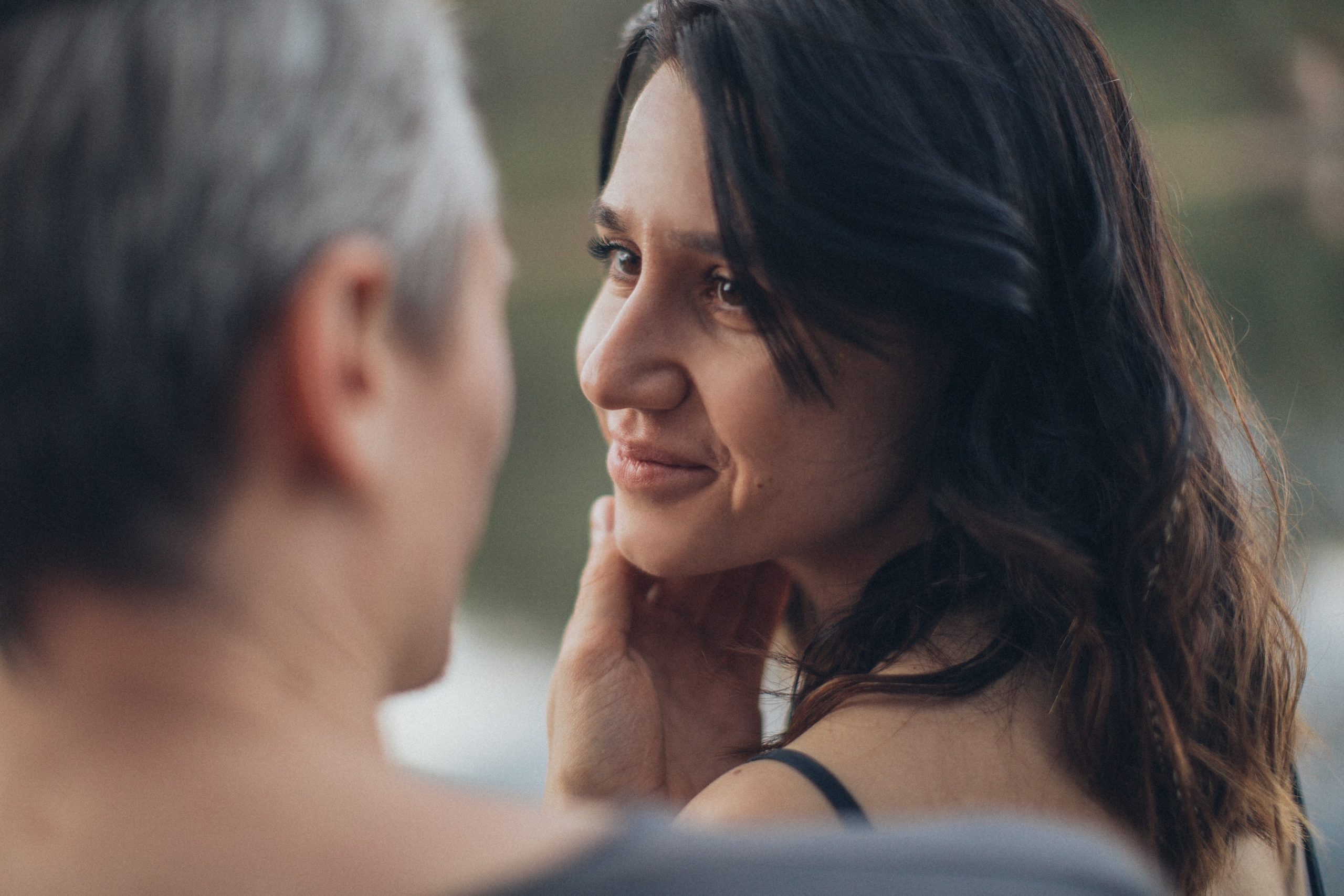About This Episode
In this episode we’ll explore my proposition that sex should be a target for improving overall quality of life and health. I’ll explore how sexual changes are a side effect to every, and I mean every, life stressor from cancer, work stress to depression and anxiety. I’ll also talk about the sexual benefits of sex for your health and relationships. Together, I propose we make SEX our target. What would it be like if you woke up each day and focused on your sexuality? How would that shift your focus and self-care throughout the day?
Tune into the conversation and let’s start talking about what we don’t talk about enough – sex!
I’m always open to your feedback, questions and comments. So please leave me a comment, DM me on IG or email me at contact@DrCatalinaLawsin.com
Tune in every Hump Day (Wednesday) for a new episode of Sex Marks The Spot!
Cheers,
Catalina
Episode Transcript
Can sex really save your life? I’m Dr. Catalina Lawsin, a Licensed Clinical Psychologist, and I love talking about sex. Sex Marks The Spot is a podcast that bridges the gap between what we know and what we actually do when it comes to sex, relationships and health.
Changes to sexual wellbeing are a symptom or a side effect of every physical, or emotional, or psychological stressor. And yes, I literally mean everything. Cancer, cardiac disease, depression, anxiety, psychosis, substance abuse, menopause, divorce, across all of these life stressors, our sex life and our sexuality goes to the wayside. Unfortunately, sexual wellbeing is rarely assessed or even talked about in healthcare, and Sex Marks The Spot aims to change this. So sexuality is not just sex. Sex, when we’re talking about this, our sexuality is how we look at ourselves, how we look at others, how we walk into a room, how we dress, how we hold our chest out high, how sexy we feel inside, and how we express that intimately towards others.
Unfortunately, because life has gotten so crazy, and the reality is is that it feels so, so busy all the time that unfortunately, our sexuality often gets suppressed, ignored. Loneliness is an epidemic that really has now fed us to completely ignore sexuality. While there’s all this sex positivity and you’re hearing more and more people openly talk about sex, and vibrators, and different sexual positions, BDSM is getting more popular, keep in mind it’s a very subset of individuals.
What I think needs to happen is is that actually in healthcare and in our day-to-day lives, we actually need to prioritize sex more. But the reality is is that oftentimes, sex is actually looked at as an afterthought. A lot of that data is really just after, when we’re looking at weight loss or substance use or depression. After we look at the primary target of losing more weight or improving your mood, then that’s when they start looking at, “Okay, well how is this affecting your sexuality and your relationships?”
I argue that actually we should put sex in the forefront. That sex should actually be the primary target, and the first thing we think about each and every day. You may think this is absolutely crazy. Let’s start this conversation. Absolutely. But think about it. What would it actually be like if you woke up every day and asked yourself, “How sexy do I want to feel today?” Even on those days you feel absolutely crap. How sexy do you feel? Actually checking in with yourself, actually thinking about how you feel sexually.
Thinking about also markers using things rather than … Looking at weight loss. One of the things we know when we look at weight loss interventions, generally, particularly when you’re talking about these year-long obesity interventions, what you end up seeing is as a secondary side effect or when they’re redoing that analysis and looking at, “Okay, what else improved?” What you end up seeing is that sexual wellbeing, sexual satisfaction, sexual frequency also increase.
So what would it be? Instead of thinking, “Oh, how many pounds have I lost?”, or, “Ooh, how do my clothes fit?” Rather than thinking about using those as markers, what if we actually use sex as our marker, and actually our markers of how we’re improving or making shifts in our lives? The reality is that when you think about sex immediately, things shift.
So you’ve probably read a few things on the health benefits of sex. So let’s break some of those down, just to remind us. Sex has been shown to improve our immune function. Studies have shown that when people are affected by a flu or a cold or exposed to that, individuals who are more sexually satisfied or engaging in sexual activity more often, actually are less susceptible to that cold. So it actually improves your immunoglobulin and your IGA levels to actually boost up your immunity.
It also helps with cardiac health, and actually lowers your risk for cardiac disease and stroke. For those of you who have insomnia, for the millions of Americans who actually can’t sleep at night, what that release of oxytocin actually puts you to bed. Sex certainly can be a stress relief. At the end of the day, letting go of a lot of that frustration and actually letting your body express itself can absolutely be a stress reliever.
Sex actually has incredible benefits and it makes sense. It’s why we’re here in the first place. Yet, sex is rarely actually addressed. I’ve given talks all over the world and when I’ve asked all of these audiences of whether or not they actually assess sexual wellbeing, I’ve never … And I literally mean never, actually had a clinician say that they have. And that’s not because clinicians, they’re not doing their job. It’s just that the reality of our healthcare system is that they have so much to deal with that sex literally is not as enough of a priority.
They’re focusing more on the mechanics. The reality is, yes, absolutely, there are mechanics to sex, but it generally doesn’t get addressed. Right now, one of the things that’s actually been acknowledged is how much loneliness is this epidemic in our world. So many people, no matter if they’re married, or single, or have big families and friends, they don’t feel connected. I think when we focus a bit more on our sexuality and our sexual wellbeing, we can actually find those connections.
Well, a lot of my work is really trying to focus on actually what if we addressed it at the start? What if we started the conversation of assessing individual’s health, and you checking yourself about how healthy you feel by actually assessing your sexual wellbeing? How sexy you feel, how often are you engaging in sexual activity, or even just intimacy or connecting with others sexually.
How would that actually shift how you move about your day? When we actually open the door and just even say the word “sex”, let alone ask just one question, “How sexually satisfied are you?”, or, “How’s your sex life?”, it actually is a holistic assessment of how an individual’s life is.
Think about it. If you were actually … Say you’re crazy busy at work, you’ve been working hundred hour weeks, how much time actually are you maybe having for sex? Unless you’re watching ER or something like that and you’re doing it in the closet and things like that, which is not realistic. I’ve worked in hospitals. Oftentimes, what we’re doing is we’re focusing on absolutely … There are moments in our life where we are just focusing, focusing, focusing. But the reality is, we don’t actually have to have intercourse to harness in that sexual energy, but that sexual energy actually gets neglected and isn’t used for that fuel that it actually could.
So if you think about our sexuality and if you study tantra and things like that, and even when we think about lots of different traditions that have been around for ages, if you think about it, so much of our core and our life source, where we came from, is from our sexual organs. That’s where we get a lot of our potency and energy. What we can do instead is actually harness that energy to actually promote ourselves, promote our health, promote our wellbeing.
So focusing on our sexual wellbeing authentically empowers us to make decisions based on what we want, not what others want, not what others tell us we should want. So let me say that again because this is where I’m going to come to, hopefully every single episode. Our sexuality is what we want, our desires. It embraces our fears and we get to assert our boundaries.
There is so much shame, embarrassment, and guilt around sex and no wonder so many of us are unsatisfied. Embracing one’s sexuality actually requires a focused awareness of the interrelatedness of our physical, our emotional, our relational and our spiritual wellbeing, all of that holistically integrated together.
Then as a shout-out to clinicians, one of the things I would recommend is try asking one question. That would be, “How sexually satisfied are you?” No matter what the context is, in primary care, for specialty clinics, that one question we actually know actually embodies individuals’ perceptions of their sexual wellbeing. So normalizing statements such as it’s pretty common in the context of cancer, diabetes, cardiac disease, whatever it is, wherever that person’s at, to experience sexual changes. How sexually satisfied are you? See how much this opens up your assessment, and more importantly, your relationship with your client or your patient, and actually gives you a holistic perspective of what they’re coming and what they’re presenting with, as well as how you can actually intervene.
So can sex really save your life? The answer is, well, at some point, unfortunately we all are going to pass away. But sex makes your life worth living. So yes, it can save your life if you want it to. If you listen to your desires, your fears, and your boundaries, and choose to prioritize your sexuality, then absolutely sex can save your life.
So keep an eye out. Join my YouTube page and subscribe, and listen to my podcast. It will be coming out every Wednesday, Hump Day. So follow me and check me out next week and make sex your medicine. Cheers!
Disclaimer:
The content on this show is meant to be relatable, educational, empowering, and hopefully a little funny. It’s not meant to be treatment. Some of the things we talk about may seem more easier said than done. So if you’re feeling stuck, or alone, or distressed, reach out for support from therapists, physicians, or other licensed healthcare providers. Thanks for listening and tune in each Hump Day for some juice to fuel your sexy day. Cheers!
Podcast: Play in new window | Download









